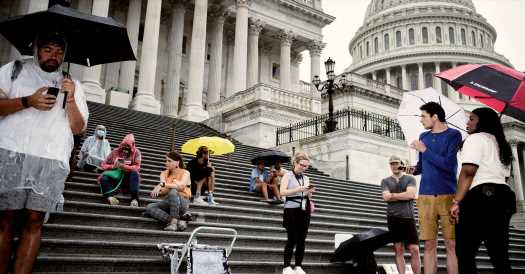Following the expiration of the moratorium over the weekend, the White House called on state and local governments to protect renters and sought to speed the flow of federal aid.
By Glenn Thrush and Matthew Goldstein
WASHINGTON — With the federal moratorium on evictions having expired over the weekend, the White House on Monday sought to limit the impact, demanding that states speed up disbursement of billions of dollars in bottled-up rental aid while pleading with local governments to enact their own extensions.
President Biden — under fire from the left of his party for not extending the freeze and eager to prove he was taking action to prevent evictions — directed federal agencies to consider targeted extensions for tenants in federally subsidized housing, asked state judges to slow-walk eviction proceedings and called for a review of problems that have slowed the flow of aid.
The temporary ban on evictions, imposed by the Centers for Disease Control and Prevention last fall, lapsed on Saturday after a frenzied, failed effort on Capitol Hill to extend it through the end of the year, putting hundreds of thousands of tenants at risk of losing shelter.
It will take weeks for new eviction cases to work their way through state courts. But some legal aid groups and tenants’ organizations are already reporting a steep rise in phone calls and emails from renters who owe money to landlords and lost the protection of the federal moratorium at midnight on Saturday.
Kyle Webster, a tenants’ lawyer in Pittsburgh, braced himself for a busy weekend, but was unprepared for the volume of phone calls that his office got from panicked, angry and confused tenants seeking help — 1,200 of them.
“It’s overwhelming, and, to be honest, we don’t know if we can actually call all of those people back,” said Mr. Webster, whose organization, ACTION-Housing, represents low-income renters in housing court in Allegheny County, Pa.
The most striking difference between conversations with tenants before the moratorium lapsed and now is the length of each phone call, Mr. Webster said: In the past, people would rush off the line — now, they linger for a half-hour or more, repeatedly asking lawyers for assurance their families will not be thrown out on the street.
Source: Read Full Article

